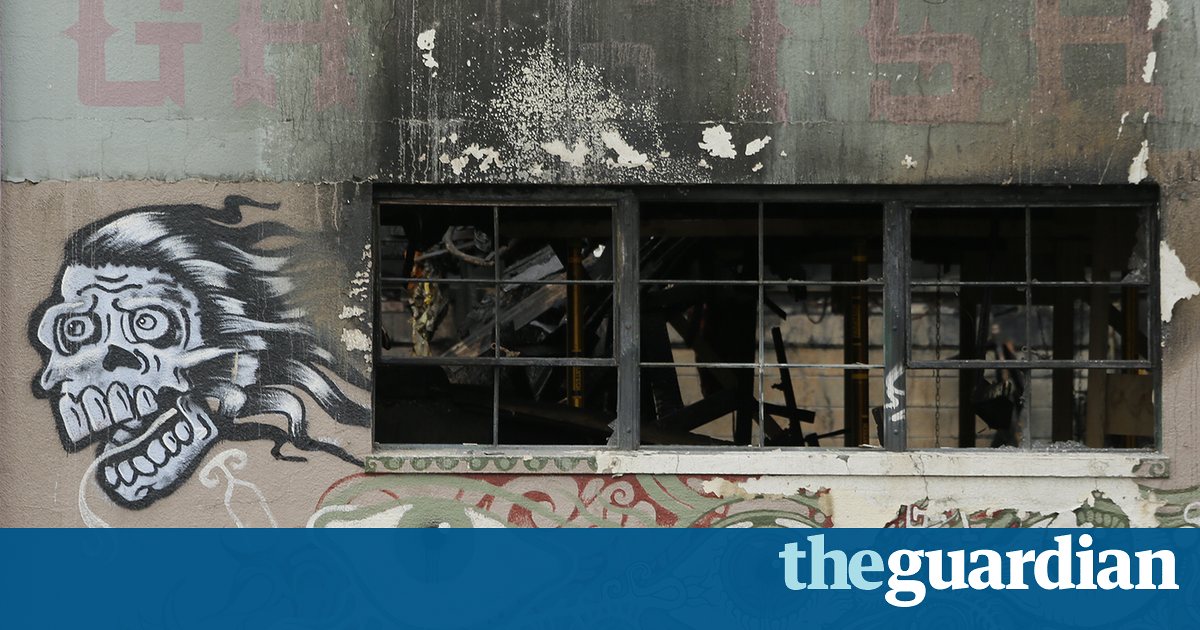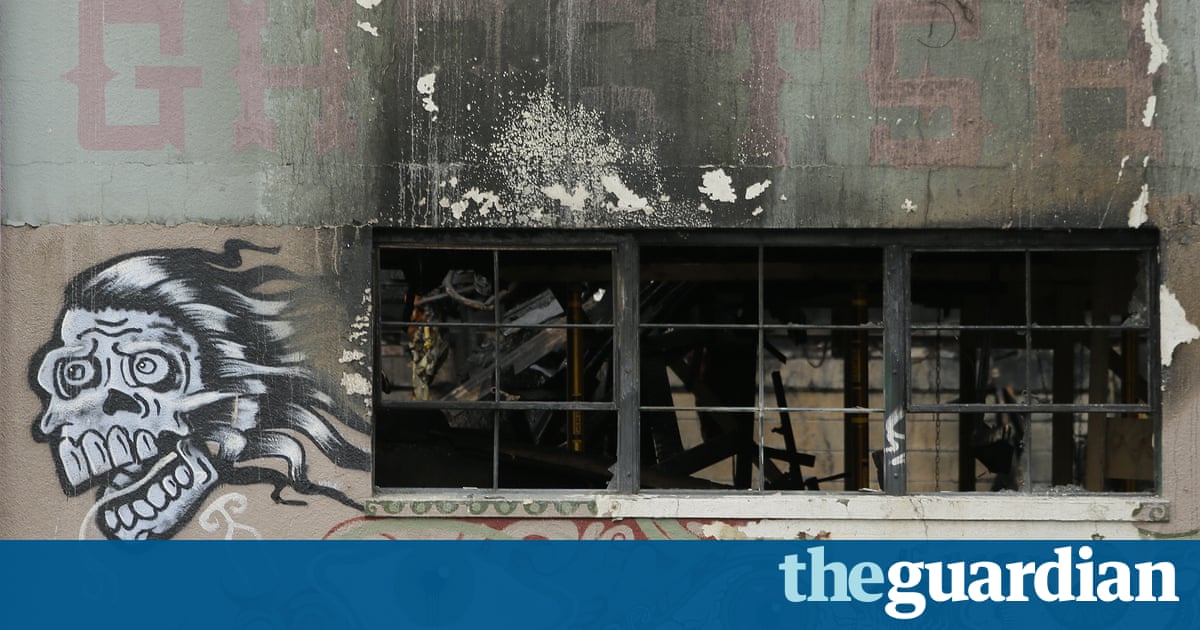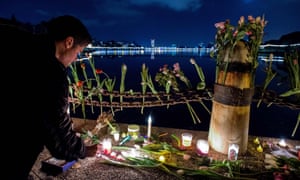Underground artists fear Oakland fire will spur a wave of mass evictions

Artists and housing activists say that safety matters, but crackdowns on warehouse spaces will displace already vulnerable communities

The devastating Oakland warehouse fire has provoked threats of mass evictions of artist communities and low-income residents, raising concerns that real estate developers will exploit the tragedy to shutter old buildings and displace vulnerable tenants.
Just days after the fire at the Ghost Ship warehouse that killed 36 people, city officials and community leaders in Oakland and cities across the US have begun targeting underground spaces that they say pose similar hazards and should be closed.
But artists and housing activists including in Baltimore, where dozens were abruptly evicted from an arts building two days after the Oakland fire said the crackdowns are hurtful and unproductive and will disproportionately impact LGBT communities and people of color.
It feels like a double dagger in our gut, said Sarah Sexton, an Oakland-based music booker. First we lose our friends and then we lose the spaces that weve bonded with them in.
The Friday night fire which ignited in an arts space that was filled with wood and lacked basic fire safety mechanisms has already prompted officials in Oakland and surrounding California cities to scrutinize other warehouses.
An Oakland barbecue restaurant held a press conference on Wednesday to call on the city to investigate a neighboring warehouse. Earlier in the week, a fire inspector visited a different Oakland warehouse, telling a tenant the city was investigating a complaint and taking steps to prevent a terrible tragedy.
In Richmond, a city just north of Oakland, the mayor Tom Butt wrote an op-ed raising concerns about an an unpermitted, unlicensed night club that he called our own Ghost Ship.
Artists said that efforts to improve the safety of underground venues and non-traditional housing are important, but argued that launching aggressive shutdowns will disrupt already marginalized communities and force some to become homeless. The debate comes amid an extraordinary housing crisis in Oakland where skyrocketing rents and tech-induced gentrification has led to mass displacement.
Its just so insulting that this is happening, said Lisa Aurora, co-founder of Naming Gallery in Oakland. We need to stand up for the people whose lives were taken, who were about creating spaces for people.
On Monday, Baltimore shut down a building called the Bell Foundry, citing safety violations and deplorable conditions, forcing many to immediately vacate.
Although Baltimore officials claimed the Oakland fire was not the impetus for the shutdown, affected tenants said it seemed obvious the city was using the tragedy as an excuse to clear out the property so that it could be redeveloped for a more profitable use.
They are being opportunistic about that travesty in order to flip a building, said Person Abide, a 29-year-old tenant, adding, The Bell Foundry functions as a place for queers and people of color to find support.

Abide posted video of the eviction, showing a police officer repeatedly refusing to allow the tenants to re-enter the building to retrieve their cat.
These types of evictions are a significant problem in low-income housing across Baltimore, not just for arts spaces, added Abide, who was friends with one of the Oakland fire victims.
I dont have anywhere to live. I dont make much money and cant afford traditional rent, said a local activist and evicted resident who goes by the name Koala! Largess.
Aran Keating, artistic director of the Baltimore Rock Opera Society, a group that occupies the first floor of the Bell Foundry building, said it was wrong for the city to claim to be a supporter of the arts but then refuse to find a way to work with the pivotal group of artists.
When an arts community is building itself and bootstrapping itself in order to make huge impacts on the community, it gets stabbed. It gets pushed down.
Some of those involved in underground art scenes argued that a wave of shutdowns would only further discourage people from speaking out about legitimate safety concerns.
For venues putting on community-oriented shows that dont make a lot of money, it can also be difficult to navigate government bureaucracy and in some cases financially impossible to transform a building in a way that complies with municipal codes, which are often outdated.
Sexton said there were no easy solutions, but suggested the creation of a fund to help venues comply with building codes or a non-profit group that can work with fire marshals and arts organizations.
Annie Campbell Washington, an Oakland city councilwoman, said city leaders were committed to preserving art spaces and their housing.
Artists in Oakland are so important to our way of life, she said, but added, Obviously, human life and human safety has to be our number one issue.